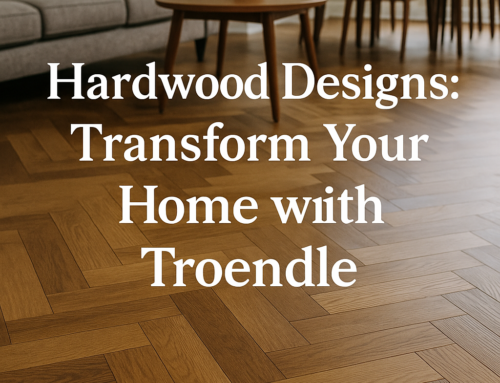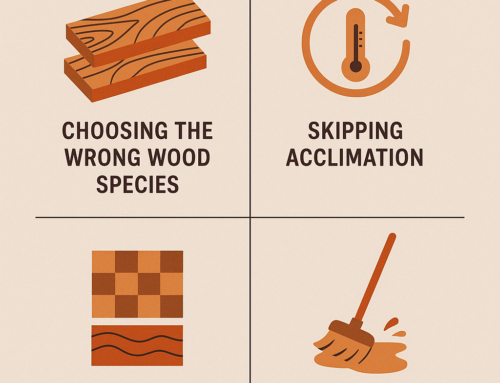Are you considering upgrading the flooring in your home? If so, one option worth exploring is engineered hardwood flooring. Engineered hardwood has gained popularity in recent years due to its durability, versatility, and aesthetic appeal. In this article, we will explore the numerous benefits of engineered hardwood flooring and why it can be an excellent choice for your home.
Table of Contents
1. Introduction
2. What is Engineered Hardwood Flooring?
3. Durability and Stability
4. Wide Range of Design Options
5. Easy Installation Process
6. Cost-Effective Solution
7. Compatibility with Underfloor Heating Systems
8. Enhanced Moisture Resistance
9. Environmentally Friendly Choice
10. Low Maintenance Requirements
11. Hypoallergenic Properties
12. Increased Property Value
13. Long Lifespan
14. Addressing Common Concerns
15. Conclusion
16. Frequently Asked Questions (FAQs)
1. Introduction
When it comes to choosing the right flooring material for your home, there are several options available. Engineered hardwood flooring has become increasingly popular due to its unique combination of strength and beauty. Unlike traditional solid hardwood flooring, engineered hardwood is composed of multiple layers of wood that are bonded together under high pressure. This construction method provides several advantages that make engineered hardwood a desirable choice for homeowners.
2. What is Engineered Hardwood Flooring?
Engineered hardwood flooring is a type of flooring that consists of a thin layer of real hardwood on top, which is bonded to several layers of high-quality plywood or fiberboard. These layers are stacked in a cross-grain configuration, providing exceptional stability and strength to the flooring. The top layer, also known as the wear layer, can be made from various hardwood species, allowing for a wide range of design options to suit different preferences.
3. Durability and Stability
One of the primary benefits of engineered hardwood flooring is its exceptional durability and stability. The cross-grain construction of engineered hardwood makes it less susceptible to expansion and contraction caused by changes in temperature and humidity, compared to solid hardwood flooring. This stability makes engineered hardwood an excellent choice for areas with fluctuating moisture levels, such as kitchens, basements, or bathrooms.
4. Wide Range of Design Options
Engineered hardwood flooring offers an extensive selection of design options to suit any interior style. The top layer can be made from various hardwood species, including oak, maple, walnut, and cherry, each with its unique grain patterns and colors. Whether you prefer a traditional, rustic look or a more contemporary and sleek appearance, engineered hardwood can be customized to match your aesthetic preferences.
5. Easy Installation Process
Another advantage of engineered hardwood flooring is its ease of installation. Unlike solid hardwood flooring, which often requires nailing or stapling to a subfloor, engineered hardwood can be installed using several methods, including glue-down, nail-down, or floating installation. The versatility of installation options makes engineered hardwood a convenient choice for both professional installers and DIY enthusiasts.
6. Cost-Effective Solution
Compared to solid hardwood flooring, engineered hardwood offers a cost-effective solution without compromising on quality and aesthetics. The manufacturing process of engineered hardwood allows for the use of less expensive wood species for the core layers while still providing a genuine hardwood surface. This makes engineered hardwood more affordable while maintaining the natural beauty and elegance associated with hardwood flooring.
7. Compatibility with Underfloor Heating Systems
Engineered hardwood flooring is compatible with underfloor heating systems, providing warmth and comfort underfoot during colder months. The stable construction of engineered hardwood ensures that it can withstand the temperature changes associated with underfloor heating without warping or shrinking. This feature makes engineered hardwood an ideal choice for homeowners looking to combine the charm of hardwood flooring with the cozy ambiance of heated floors.
8. Enhanced Moisture Resistance
Unlike solid hardwood flooring, which can be vulnerable to moisture damage, engineered hardwood offers enhanced moisture resistance. The multiple layers of plywood or fiberboard in engineered hardwood act as a barrier against moisture penetration, reducing the risk of warping, cupping, or swelling. This moisture resistance makes engineered hardwood suitable for areas of the home where solid hardwood might not be recommended, such as basements or bathrooms.
9. Environmentally Friendly Choice
If you are conscious of environmental sustainability, engineered hardwood flooring is an excellent choice. By utilizing a thin layer of real hardwood as the wear layer and combining it with renewable and fast-growing wood species for the core layers, engineered hardwood maximizes the use of available resources. Additionally, engineered hardwood often requires fewer trees to produce compared to solid hardwood, making it a more environmentally friendly option.
10. Low Maintenance Requirements
Maintaining engineered hardwood flooring is relatively easy and requires minimal effort. Regular sweeping or vacuuming, along with occasional damp mopping, is usually sufficient to keep the floors clean and free from debris. Unlike carpet or other types of flooring, engineered hardwood does not trap dust, allergens, or pet dander, making it an excellent choice for individuals with allergies or respiratory sensitivities.
11. Hypoallergenic Properties
For individuals with allergies or asthma, engineered hardwood flooring can contribute to a healthier indoor environment. Unlike carpet, which can harbor dust mites, pollen, and other allergens, hardwood floors are easier to clean and less likely to trap allergenic particles. With regular cleaning, engineered hardwood can help reduce the presence of allergens in the home, improving indoor air quality and promoting overall well-being.
12. Increased Property Value
Investing in engineered hardwood flooring can significantly increase the value of your home. Hardwood floors are highly sought after by homebuyers due to their timeless beauty, durability, and long lifespan. The addition of engineered hardwood can enhance the aesthetic appeal of your home and make it more appealing to potential buyers, translating into a higher resale value and a quicker sale.
13. Long Lifespan
Engineered hardwood flooring is built to last. With proper installation and regular maintenance, engineered hardwood floors can withstand the test of time and maintain their beauty for decades. The top layer can also be refinished multiple times, allowing you to restore the floors’ original luster and address any signs of wear or scratches. This long lifespan ensures that your investment in engineered hardwood will provide enjoyment and value for many years to come.
14. Addressing Common Concerns
Can Engineered Hardwood Be Refinished?
Yes, engineered hardwood can be refinished. However, the number of times it can be refinished depends on the thickness of the wear layer. Thicker wear layers can be sanded and refinished multiple times, similar to solid hardwood flooring. It is recommended to consult with a professional flooring contractor to assess the wear layer thickness and determine the appropriate refinishing options.
Is Engineered Hardwood Suitable for All Areas of the Home?
Engineered hardwood is suitable for most areas of the home, including living rooms, bedrooms, dining rooms, and hallways. However, it is not recommended for areas with high moisture levels, such as bathrooms or laundry rooms, unless the specific product is designed to withstand moisture. Additionally, it is advisable to use rugs or mats in high-traffic areas to protect the flooring from excessive wear.
How Does Engineered Hardwood Compare to Solid Hardwood Flooring?
Engineered hardwood and solid hardwood flooring have distinct differences. Engineered hardwood is constructed with multiple layers, making it more stable and resistant to moisture. Solid hardwood, on the other hand, is made from a single piece of wood and is susceptible to expansion and contraction due to changes in humidity. Both options offer the beauty of real wood, but engineered hardwood provides additional benefits in terms of durability and versatility.
Does Engineered Hardwood Contain Formaldehyde?
Engineered hardwood may contain trace amounts of formaldehyde due to the adhesives used during manufacturing. However, reputable manufacturers comply with strict regulations and industry standards to ensure low formaldehyde emissions. When selecting engineered hardwood flooring, look for products that meet or exceed recognized certifications, such as CARB Phase 2 or FloorScore, which indicate low formaldehyde emissions.
Can Engineered Hardwood Be Installed Below Ground Level?
Yes, engineered hardwood can be installed below ground level, such as in basements or lower-level rooms. The stability and resistance to moisture of engineered hardwood make it a suitable choice for these areas. However, it is essential to follow the manufacturer’s guidelines for installation and take proper precautions to address any potential moisture issues, such as using a moisture barrier or sealant.
15. Conclusion
In conclusion, engineered hardwood flooring offers numerous benefits that make it an attractive option for homeowners. Its durability, stability, wide range of design options, and easy installation process make it a versatile and cost-effective choice. Engineered hardwood is compatible with underfloor heating, resistant to moisture, and has low maintenance requirements. Additionally, it is an environmentally friendly choice, provides hypoallergenic properties, increases property value, and boasts a long lifespan. By considering the advantages of engineered hardwood flooring, you can transform your home’s interior while enjoying the beauty and functionality of this exceptional flooring option. If you still have questions about engineered hardwood flooring, contact us. We want to help you understand everything about this as a flooring option for your home.
16. Frequently Asked Questions (FAQs)
FAQ 1
Q: How does engineered hardwood differ from laminate flooring?
A: Engineered hardwood consists of a real wood wear layer bonded to multiple layers of plywood or fiberboard, while laminate flooring is composed of a high-density fiberboard core with a printed photographic image of wood grain on top. Engineered hardwood offers the authentic look and feel of real wood, while laminate provides a more affordable alternative with different visual options.
FAQ 2
Q: Can I install engineered hardwood flooring over existing tile or vinyl?
A: In many cases, engineered hardwood can be installed over existing tile or vinyl flooring. However, proper preparation and leveling of the subfloor are crucial for a successful installation. It is recommended to consult with a professional installer to assess the condition of the existing flooring and ensure compatibility with engineered hardwood installation.
FAQ 3
Q: How do I clean and maintain engineered hardwood flooring?
A: Regular sweeping or vacuuming with a soft-bristle attachment is recommended to remove dust and debris. Occasional damp mopping with a manufacturer-approved hardwood floor cleaner is also suitable for deeper cleaning. Avoid excessive moisture and use protective pads on furniture legs to prevent scratches. Follow the manufacturer’s guidelines for specific care instructions.
FAQ 4
Q: Can I install engineered hardwood flooring myself, or do I need professional installation?
A: The installation of engineered hardwood flooring can be a DIY project for those with some level of experience and expertise in flooring installation. However, professional installation is recommended for optimal results, especially if you have little to no prior experience with flooring installation.
FAQ 5
Q: Will engineered hardwood flooring increase the value of my home?
A: Yes, installing engineered hardwood flooring can potentially increase the value of your home. Hardwood floors are highly desirable among homebuyers due to their timeless beauty and durability. The addition of engineered hardwood can enhance the overall appeal of your home and make it more marketable, leading to a higher property value.




